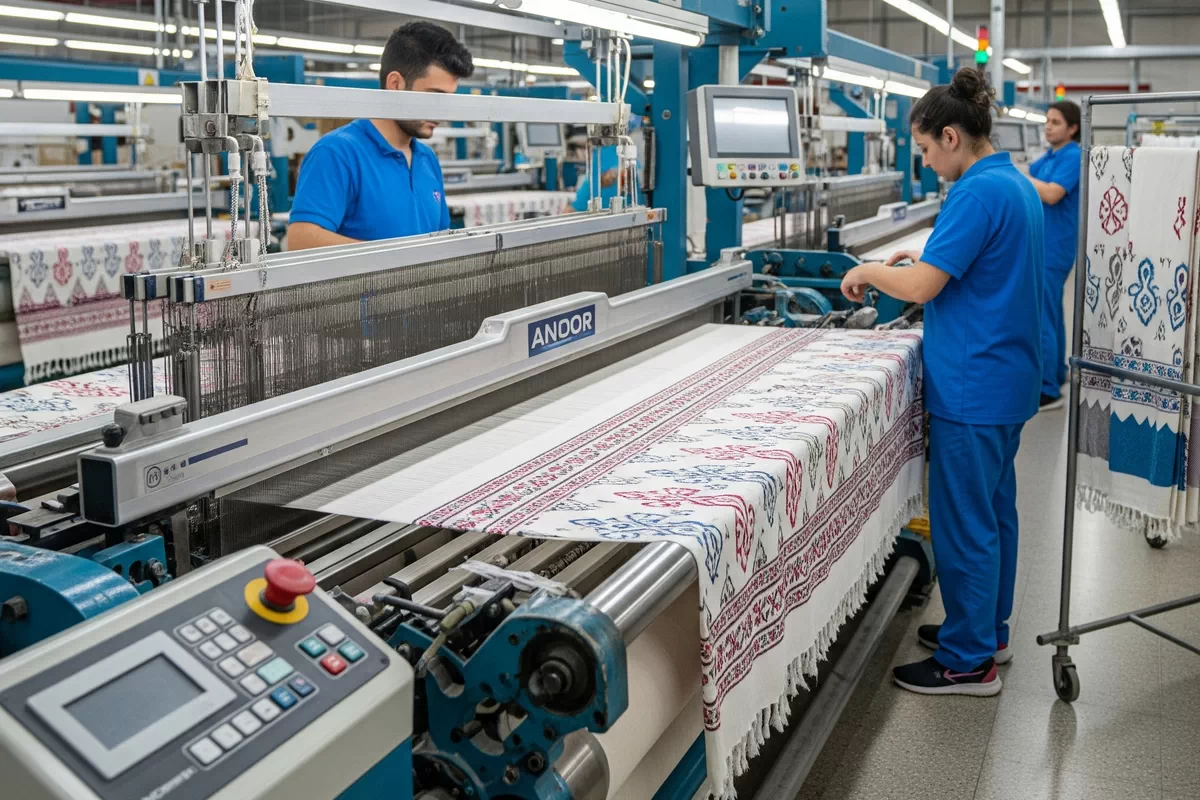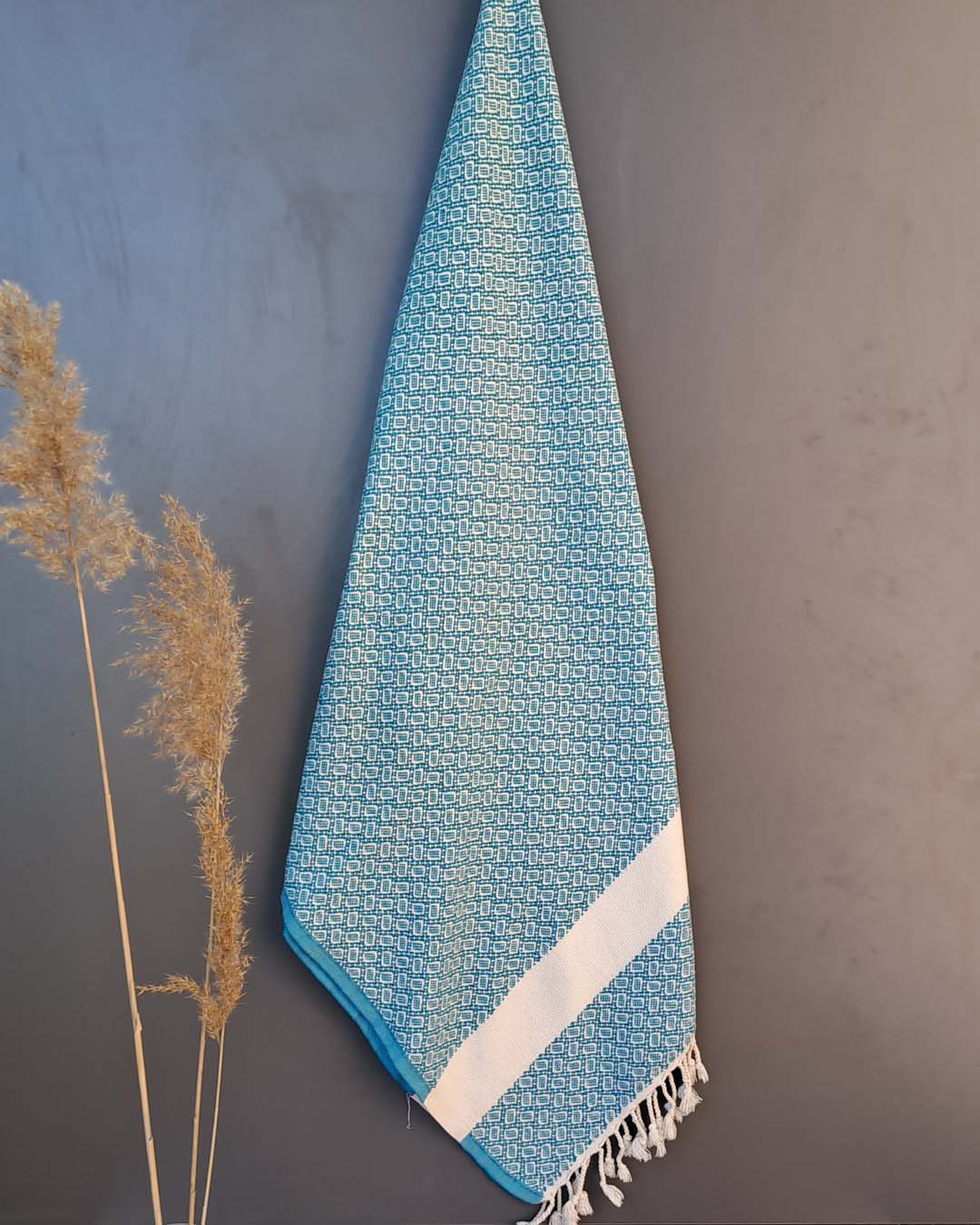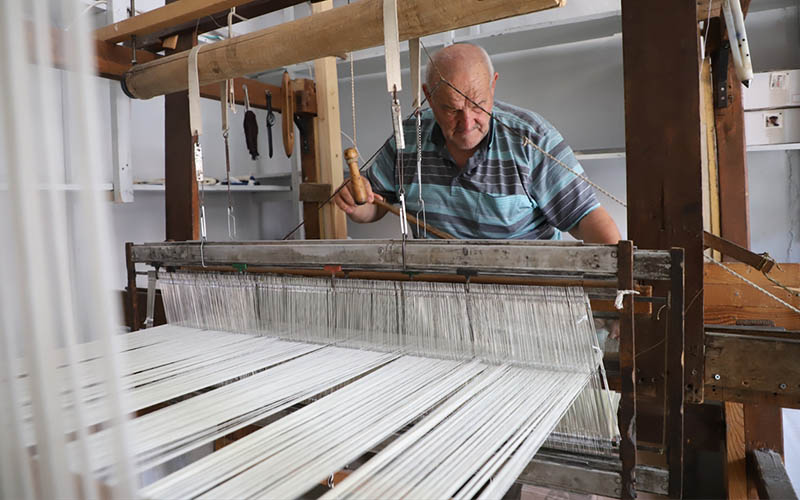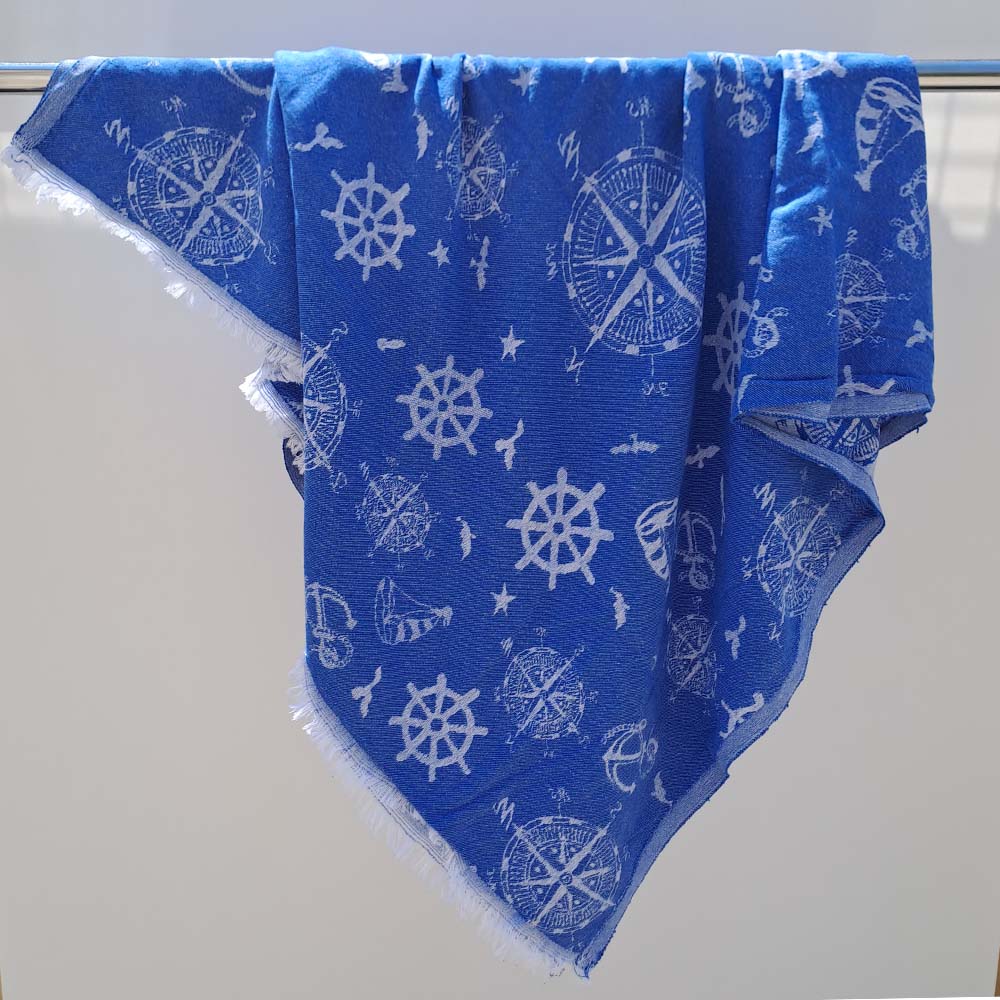Turkish beach towels, also known as Peshtemal, have been a staple of Turkish culture for centuries. Originating from the historic Turkish hammams (bathhouses), these towels were traditionally handwoven by skilled artisans using high-quality cotton. Over time, they have evolved beyond the confines of bathhouses and become a global sensation in the world of luxury beachwear, spa essentials, and travel accessories. The Secret Behind Turkish Beach Towels Why They’re So Soft & Stylish.
But what makes Turkish beach towels so special? Why do they feel incredibly soft, yet remain lightweight and durable? And how did they transition from a traditional Turkish bath item to a sought-after fashion and home decor accessory?
In this article, we will uncover the secrets behind the softness and stylish appeal of Turkish beach towels. From their unique weaving techniques to the use of premium Turkish cotton, we will explore why these towels have become a must-have for those who appreciate comfort, elegance, and sustainability. Let’s dive in!
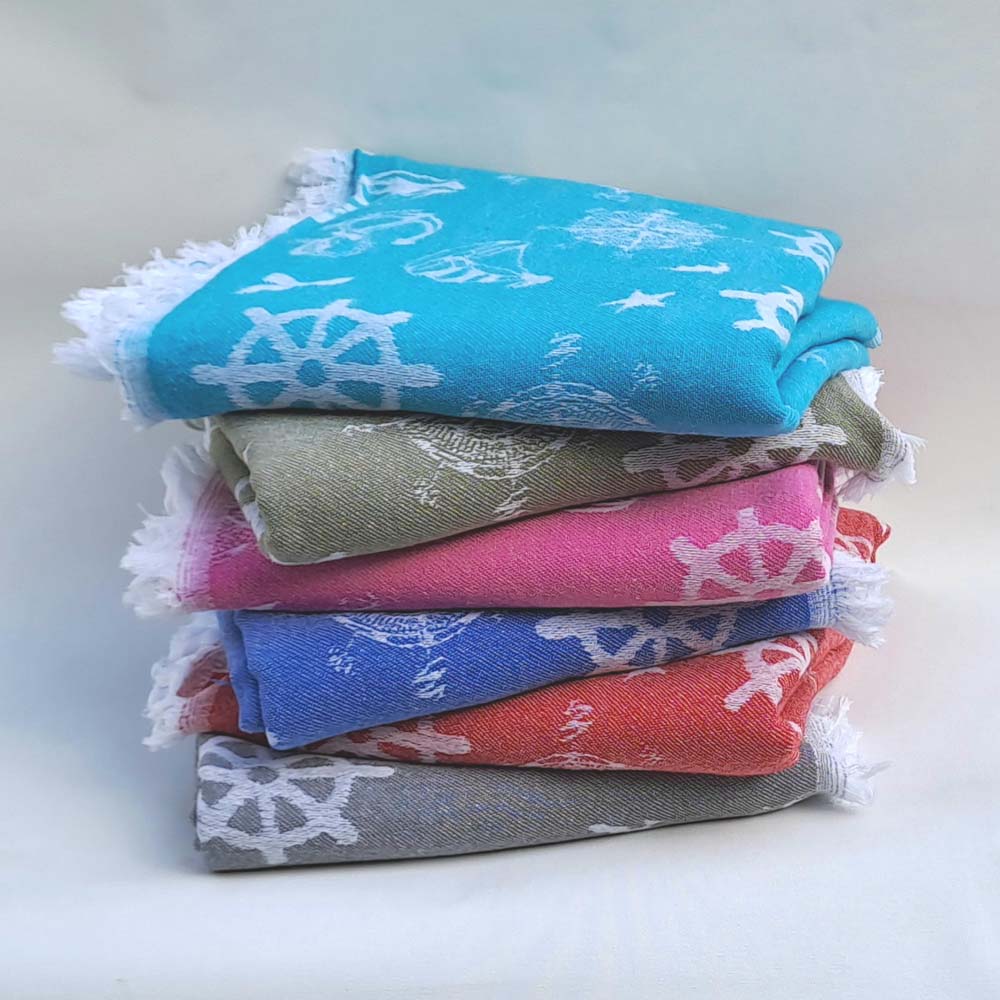
This article may interest you. How is a Traditional Turkish Beach Towel Produced?
What Makes Turkish Beach Towels Unique?
Turkish beach towels, also known as Peshtemal, stand out from traditional terry cloth towels due to their exceptional softness, lightweight feel, and stylish designs. But what truly sets them apart? Let’s explore the unique qualities that make Turkish towels a must-have for beach lovers, travelers, and home spa enthusiasts.
Premium Material: 100% Turkish Cotton
One of the biggest secrets behind Turkish beach towels is the use of long-staple Turkish cotton. This special cotton, grown in the Aegean region of Turkey, has extra-long fibers, making the towels softer, more absorbent, and more durable than regular cotton towels. Over time, they become even softer and fluffier, unlike standard towels that lose their plushness after multiple washes.
Lightweight & Quick-Drying
Unlike thick terry towels, Turkish beach towels have a flat-woven design, making them incredibly lightweight and easy to carry. This makes them ideal for travel, as they take up very little space in a bag or suitcase. Additionally, their quick-drying nature helps prevent mildew and unpleasant odors, making them a hygienic choice for beachgoers and gym users.
Highly Absorbent & Moisture-Wicking
Despite their thin and airy feel, Turkish beach towels are highly absorbent, soaking up water quickly while remaining breathable. This unique balance between absorbency and quick-drying ability ensures they are practical for beach and poolside use, without feeling heavy or damp for long periods.
Versatile Usage Beyond the Beach
Turkish towels are more than just beach essentials! Their elegant look and soft texture make them versatile enough to be used as:
✔️ Bath towels – Lightweight yet ultra-absorbent for everyday use.
✔️ Spa towels – Found in high-end resorts and wellness centers.
✔️ Yoga & gym towels – Great for workouts and post-exercise freshness.
✔️ Picnic blankets – Stylish and easy to carry.
✔️ Fashion accessories – Many people use them as shawls, wraps, or sarongs.
Eco-Friendly & Sustainable Choice
Turkish towels are often made using traditional weaving techniques that require less water and fewer chemicals during production. Many brands also use organic cotton and natural dyes, making them a sustainable and eco-conscious choice for environmentally aware consumers.
In short, Turkish beach towels combine tradition, practicality, and style in a way that regular towels simply can’t match. Whether you’re lounging by the sea, heading to the spa, or looking for a stylish home accessory, these towels are an excellent investment!
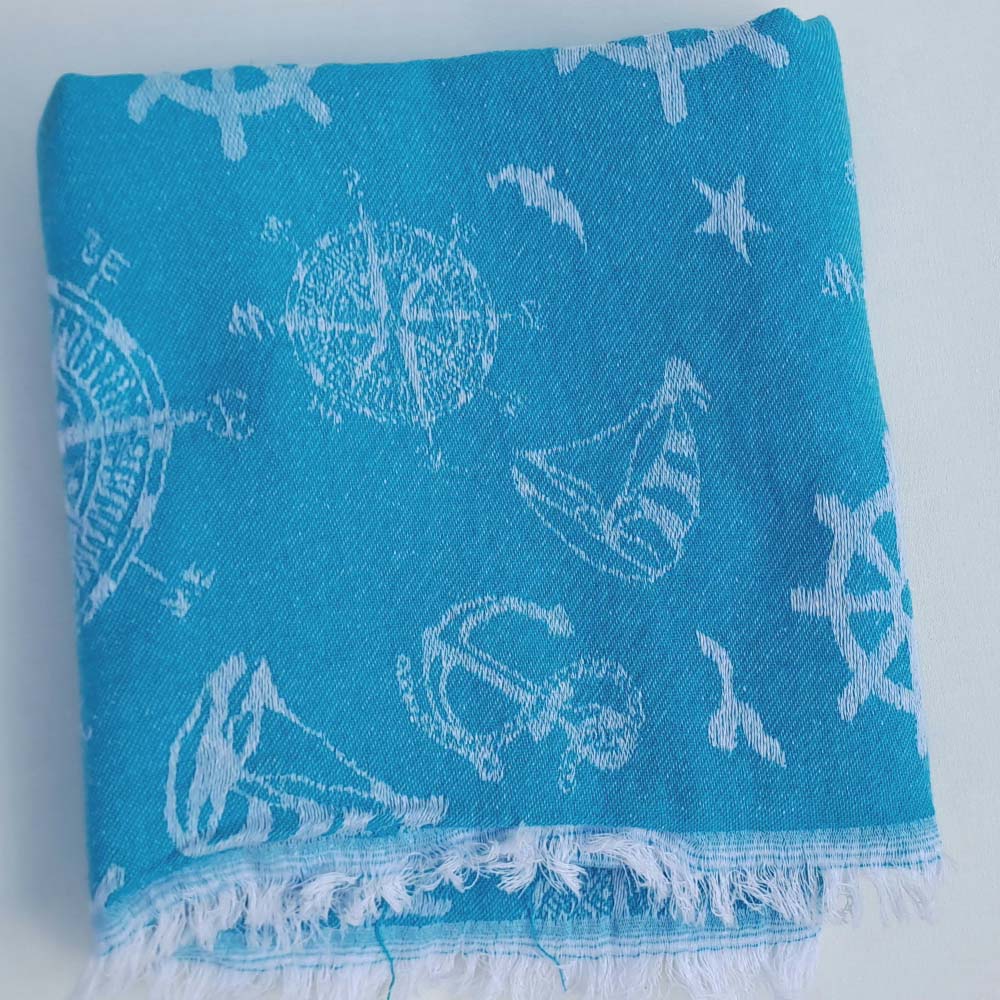
The Secret Behind Their Softness
Turkish beach towels are renowned for their exceptional softness, which sets them apart from traditional terry cloth towels. But what exactly makes them so incredibly soft and luxurious? The secret lies in a combination of high-quality materials, unique weaving techniques, and a special pre-washing process that enhances their texture over time. Let’s explore these key factors in detail.
Long-Staple Turkish Cotton: The Foundation of Softness
One of the primary reasons Turkish beach towels feel so soft is the use of long-staple Turkish cotton. This premium cotton, grown primarily in the Aegean region of Turkey, is known for its extra-long fibers, which make the fabric:
✔ Stronger and smoother – Fewer fiber ends create a softer feel.
✔ More absorbent – The longer fibers enhance water absorption.
✔ Highly durable – They withstand frequent washing without losing softness.
Unlike synthetic or short-fiber cotton towels that can feel rough over time, Turkish cotton actually gets softer with each wash, making it a long-term investment in comfort.
Special Weaving Techniques: Traditional vs. Modern Methods
Another reason Turkish beach towels stand out is their unique weaving style. Unlike standard plush towels that rely on thick loops for absorbency, Peshtemals are flat-woven using traditional Turkish techniques. This weaving method results in:
✔ A lightweight and breathable structure – Ideal for hot climates and beach use.
✔ A quick-drying fabric – Prevents musty odors and mildew buildup.
✔ A silky-smooth texture – Feels gentle on the skin after every use.
Some premium brands still use hand-loomed techniques, which create a more artisan feel and enhance the natural softness of the towel.
Pre-Washing Process: Why Turkish Towels Improve Over Time
Unlike ordinary towels that may become rough or stiff after multiple washes, Turkish beach towels become softer and more absorbent the more you use them. This is due to a special pre-washing and finishing process, which involves:
✔ Enzyme washing – Softens the cotton fibers naturally.
✔ Stone washing – Adds a slightly worn-in, ultra-soft texture.
✔ Eco-friendly dyeing – Ensures the fabric remains gentle on the skin.
This natural aging process enhances the towel’s comfort level, making it a must-have for those who value both luxury and practicality.
Final Thoughts
The unmatched softness of Turkish beach towels is no coincidence—it is the result of centuries-old craftsmanship, premium raw materials, and thoughtful finishing techniques. Whether you’re using them at the beach, in the spa, or at home, these towels offer an unparalleled experience that gets even better with time. Soft, stylish, and durable—what more could you ask for?
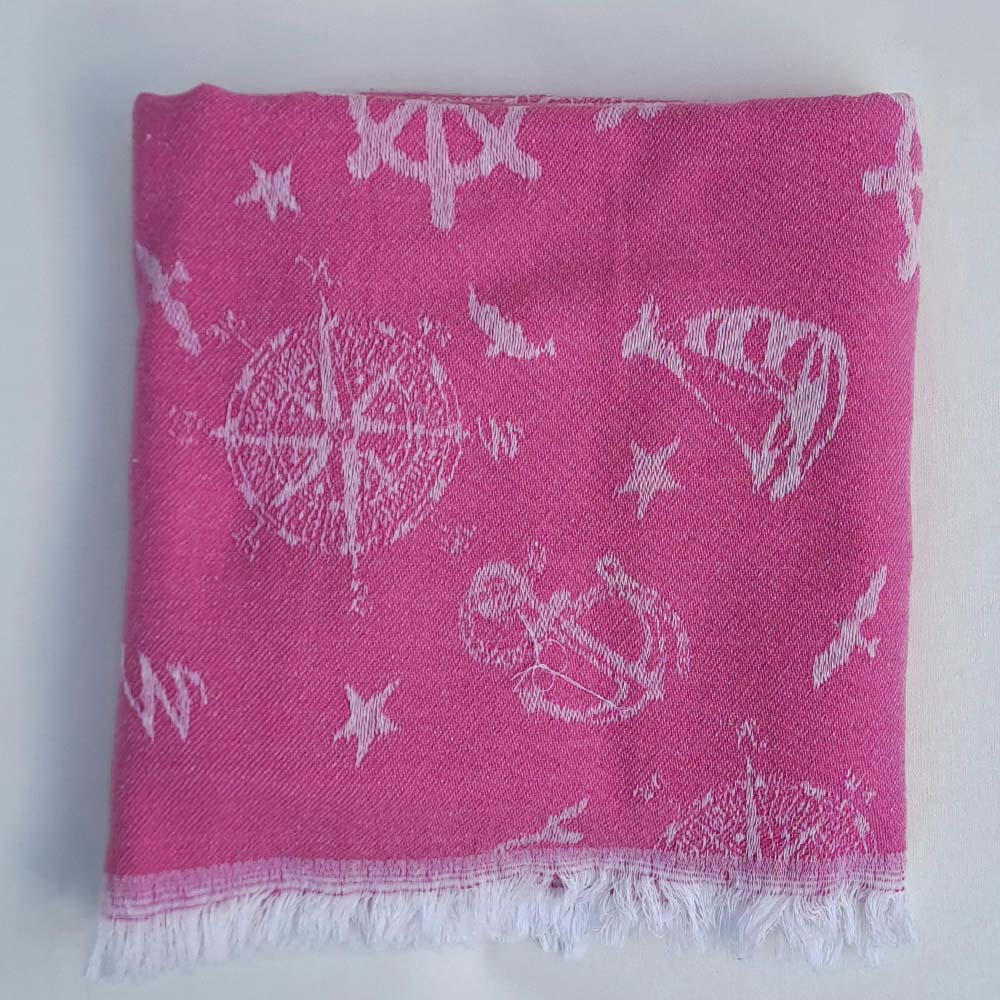
The Stylish Factor: Designs & Patterns
Turkish beach towels are not just about comfort—they’re also a fashion statement. Whether you’re lounging on the beach, wrapping yourself up after a bath, or even using them as a stylish accessory, the variety of designs and patterns available make them a versatile and trendy choice.
🔹 Traditional Ottoman-Inspired Motifs
One of the key elements that set Turkish towels apart is their deep connection to Turkish history and craftsmanship. Many peshtemal designs feature intricate patterns inspired by Ottoman-era textiles, including:
- Geometric patterns that symbolize balance and harmony.
- Floral motifs representing nature and elegance.
- Stripes & herringbone weaves, which are classic and timeless.
These patterns are often handwoven by skilled artisans, preserving centuries-old Turkish weaving traditions while offering a touch of heritage in a modern-day product.
🔹 Contemporary Minimalist & Boho-Chic Designs
While traditional designs hold cultural significance, modern Turkish towels also cater to trendy, minimalist aesthetics. Many brands now produce sleek, neutral-colored towels that match contemporary home decor. Some of the most popular styles include:
- Solid pastel colors for a soft, elegant look.
- Bold monochrome stripes for a clean, Scandinavian feel.
- Bohemian fringes & tassels for a relaxed, beachy vibe.
These designs make Turkish beach towels not just functional but also fashion-forward, easily doubling as shawls, wraps, and home decor accents.
🔹 Handwoven vs. Machine-Made Variations
Another important style aspect is the manufacturing process. Handwoven towels tend to have unique variations in texture and color, making each piece one-of-a-kind. Machine-made towels, on the other hand, are more uniform but still maintain Turkish cotton’s signature softness and absorbency.
Whether you prefer traditional, artisan-crafted peshtemals or sleek, modern designs, Turkish beach towels offer a blend of style, luxury, and practicality—perfect for any setting.
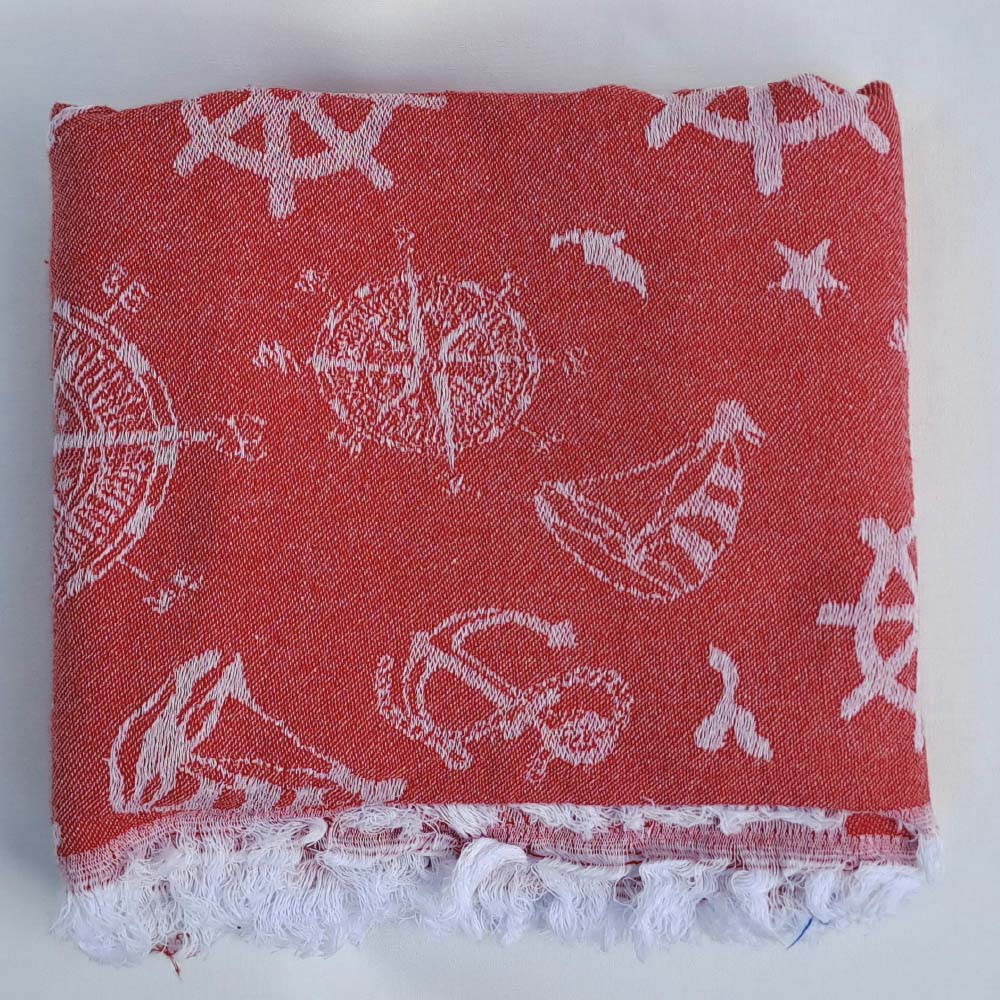
How Turkish Beach Towels Are Made
Turkish beach towels, also known as Peshtemal, are crafted through a meticulous process that combines traditional weaving techniques with modern innovations. Their superior softness, durability, and lightweight nature stem from careful material selection and expert craftsmanship. Here’s a step-by-step breakdown of how these stylish and absorbent towels are made:
1. Cotton Sourcing: The Power of Aegean Cotton
The secret behind the unmatched softness of Turkish beach towels lies in Aegean cotton, a premium variety grown in the fertile soils of Turkey’s Aegean region. This cotton is known for its long fibers, which create a smoother and stronger thread. Long-staple cotton produces less lint, enhancing the towel’s longevity and allowing it to become softer with each wash.
2. Traditional & Modern Weaving Techniques
Once the cotton is harvested, it is spun into yarn and woven into fabric. There are two primary weaving methods:
- Handwoven Peshtemals: Artisan weavers use traditional looms, often passed down through generations, to craft intricate patterns. This method ensures unique designs and exceptional quality.
- Machine-Woven Peshtemals: Large-scale production facilities use modern looms to achieve consistent textures and mass production while maintaining the softness and absorbency of traditional styles.
3. Natural Dyeing & Color Preservation
Authentic Turkish beach towels are dyed using eco-friendly, plant-based, and chemical-free dyes. This process ensures that the colors remain vibrant and fade-resistant, even after multiple washes. Many artisans use natural indigo, turmeric, and pomegranate peels to create earthy, rich hues while prioritizing sustainability.
4. Hand Finishing & Fringed Edges
One of the signature features of Turkish beach towels is their hand-tied fringes, a testament to their authenticity. Skilled artisans carefully knot and trim the fringes by hand, giving each towel a unique touch. This process also prevents fraying, ensuring longevity and aesthetic appeal.
5. Pre-Washing & Quality Control
Before reaching customers, high-quality Turkish beach towels undergo a pre-washing process, which helps:
✔️ Soften the fabric naturally.
✔️ Increase absorbency.
✔️ Prevent shrinkage.
Every batch is thoroughly checked for weaving defects, color consistency, and finishing quality before being packaged for sale.
Why This Process Matters
The careful craftsmanship behind Turkish beach towels ensures they are:
✅ Durable yet lightweight – Perfect for travel and everyday use.
✅ Super absorbent & quick-drying – Ideal for beachgoers and spa lovers.
✅ Sustainably produced – Good for the planet and your skin.
By choosing authentic Turkish beach towels, you’re investing in a centuries-old tradition of excellence while enjoying a luxurious, eco-friendly product.
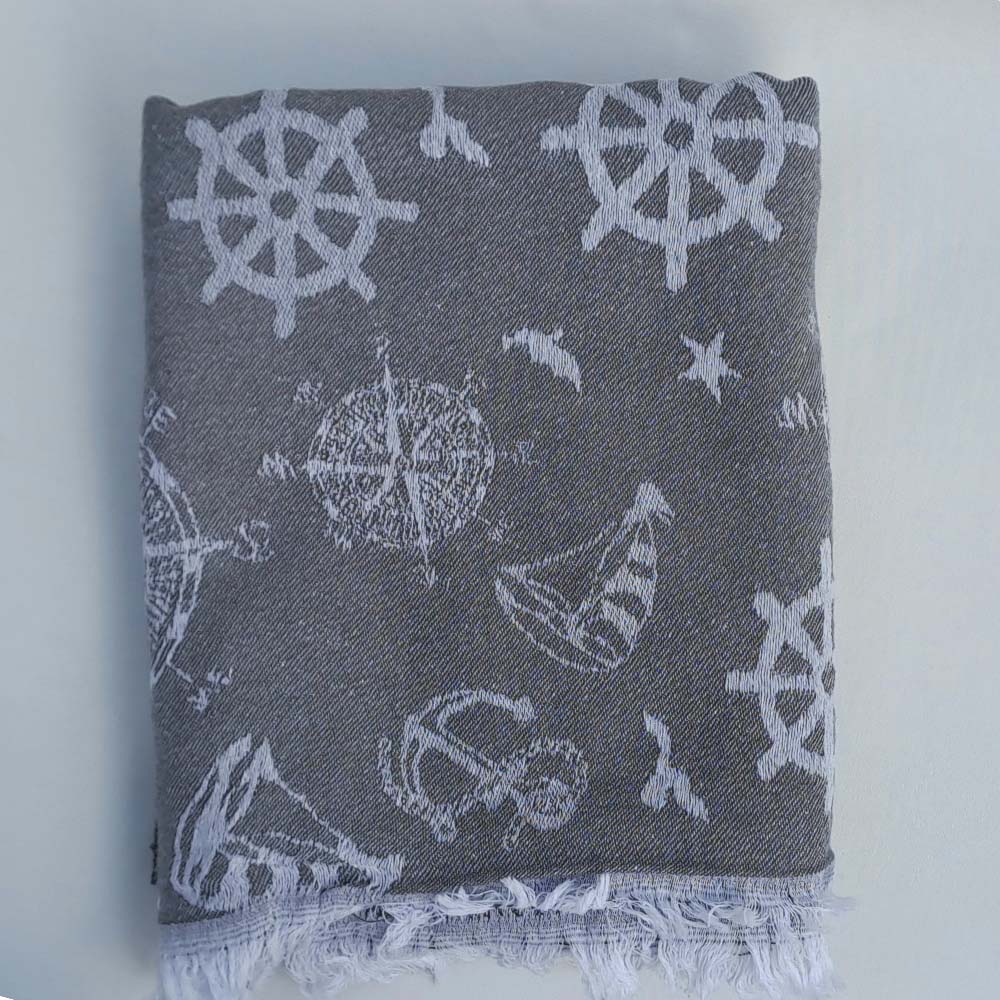
The Growing Popularity & Global Demand for Turkish Beach Towels
Turkish beach towels, also known as Peshtemal, have witnessed a remarkable surge in global demand over the past decade. Their superior softness, lightweight nature, and stylish appeal have made them a favorite among consumers, luxury hotels, and eco-conscious buyers worldwide. But what exactly is driving their increasing popularity? Let’s explore the key factors behind this trend.
1. Sustainability Trends: Eco-Conscious Consumers Love Turkish Towels
In a world shifting toward sustainability, Turkish beach towels have emerged as a preferred choice for eco-conscious consumers. These towels are typically made from 100% organic Turkish cotton, which is free from synthetic materials and harmful chemicals. The environmentally friendly dyeing process further enhances their appeal, making them a guilt-free luxury item.
Additionally, compared to bulky terry cloth towels, Peshtemals require less water and energy to wash and dry, reducing their carbon footprint. Many buyers now seek products that align with sustainable living, and Turkish towels check all the right boxes.
2. The E-Commerce Boom: Online Sales Driving Global Reach
The rise of e-commerce platforms like Amazon, Etsy, and independent boutique stores has played a significant role in popularizing Turkish beach towels. Consumers can now access authentic Turkish towels from brands that previously had limited international reach.
Key factors driving online sales include:
- Customer Reviews & Word-of-Mouth Marketing: Positive feedback on Reddit, Instagram, and review sites has amplified their desirability.
- Influencer & Celebrity Endorsements: Many social media influencers showcase Turkish towels as an aesthetic and practical beach essential.
- Customization & Unique Designs: Buyers appreciate personalized and handmade designs available through artisan sellers.
3. High Demand in the Luxury & Spa Industry
Luxury resorts, five-star hotels, and wellness spas have increasingly turned to Turkish towels due to their premium feel and high absorbency. Unlike traditional towels, Peshtemals are:
- More hygienic, as they dry faster and prevent bacterial buildup.
- Lightweight & Compact, making them easier to store and transport.
- Elegant & Versatile, adding a sophisticated touch to spa treatments and poolside lounging.
Hotels and resorts now offer personalized, embroidered Turkish beach towels as a signature guest experience, further fueling their demand in the hospitality industry.
4. The Versatility Factor: More Than Just a Beach Towel
Another reason for their widespread appeal is their multi-functional use. Consumers are increasingly valuing products that serve multiple purposes, and Turkish towels fit that requirement perfectly. Besides being a beach towel, they can be used as:
- A stylish shawl or scarf
- A lightweight blanket for picnics or travel
- A yoga mat cover or gym towel
- A chic home décor piece (throws, tablecloths, etc.)
This versatility has positioned Turkish beach towels as a year-round essential, making them a favorite across different climates and lifestyles.

How to Choose the Best Turkish Beach Towel
When shopping for a Turkish beach towel, it’s essential to know what factors determine its quality, durability, and comfort. Here are the key things to consider before making a purchase:
1. Material Matters: Cotton vs. Bamboo Blends
Authentic Turkish beach towels are typically made from 100% Turkish cotton, known for its long-staple fibers, which make the towel softer, more absorbent, and durable. However, some brands offer bamboo-cotton blends, which add a silky texture and enhance antibacterial properties. If you prioritize ultimate softness and absorbency, go for 100% Turkish cotton.
2. Weave & Thickness: What’s the Right Choice?
Turkish towels come in different weaves and thickness levels:
- Flat-Woven Peshtemals: These are lightweight, highly absorbent, and dry quickly, making them perfect for travel.
- Terry-Lined Turkish Towels: These have a plush texture, similar to regular towels, offering extra warmth and fluffiness.
- Jacquard & Waffle Weaves: These add a luxurious feel and unique patterns to the towel while maintaining breathability.
For a beach setting, a flat-woven peshtemal is the best choice since it is light, compact, and dries fast.
3. Size & Weight: Pick the Right Fit
Turkish beach towels come in various sizes, typically ranging from 35 x 65 inches to 40 x 70 inches. The right size depends on how you plan to use it:
- For lounging on the beach → A larger towel provides more coverage and comfort.
- For travel & gym → A lightweight, compact towel is ideal for easy packing.
- For a multi-purpose wrap or sarong → A thin, stylish design works best.
4. Authenticity Check: Avoid Fake Products
Due to the increasing popularity of Turkish beach towels, many imitations flood the market. To ensure you’re getting an authentic Turkish peshtemal, look for:
✔️ Made in Turkey label or certification.
✔️ Handwoven details and natural fringes instead of machine-stitched edges.
✔️ 100% Turkish cotton in product descriptions.
✔️ Reputable sellers and verified customer reviews.
5. Eco-Friendly & Sustainable Options
If sustainability is important to you, consider brands that use organic cotton, plant-based dyes, and ethical production practices. Many Turkish towel manufacturers are now adopting eco-conscious techniques, ensuring that their products are both stylish and environmentally friendly.
Final Tip:
When buying a Turkish beach towel, consider your needs—whether it’s for travel, lounging, or daily use. Opt for 100% Turkish cotton, check the weaving style, and ensure it’s an authentic product from a trusted brand. Investing in a high-quality Turkish peshtemal means enjoying a towel that gets softer with every wash and lasts for years!
Conclusion
Turkish beach towels, known for their luxurious softness and stylish designs, have rightfully earned their place as a must-have item for beachgoers, travelers, and home spa enthusiasts alike. Their unique blend of premium Turkish cotton, expert weaving techniques, and traditional craftsmanship ensures they remain softer and more absorbent over time, making them an investment in both comfort and style.
Unlike regular terry cloth towels, peshtemals are lightweight, quick-drying, and highly versatile, perfect for everything from beach days to post-shower relaxation. The wide variety of patterns and colors, inspired by both Ottoman heritage and modern aesthetics, adds a touch of elegance to any setting.
For those looking to purchase a high-quality Turkish beach towel, it’s essential to check for authenticity, material composition, and weaving techniques. Opting for brands that use 100% Turkish cotton and eco-friendly dyes will ensure long-lasting durability and maximum comfort.
As the demand for sustainable and stylish home textiles continues to rise, Turkish beach towels are becoming an even more popular choice among conscious consumers. Whether for personal use or as a thoughtful gift, they offer the perfect blend of function, beauty, and tradition—making them an essential item for any lifestyle.


